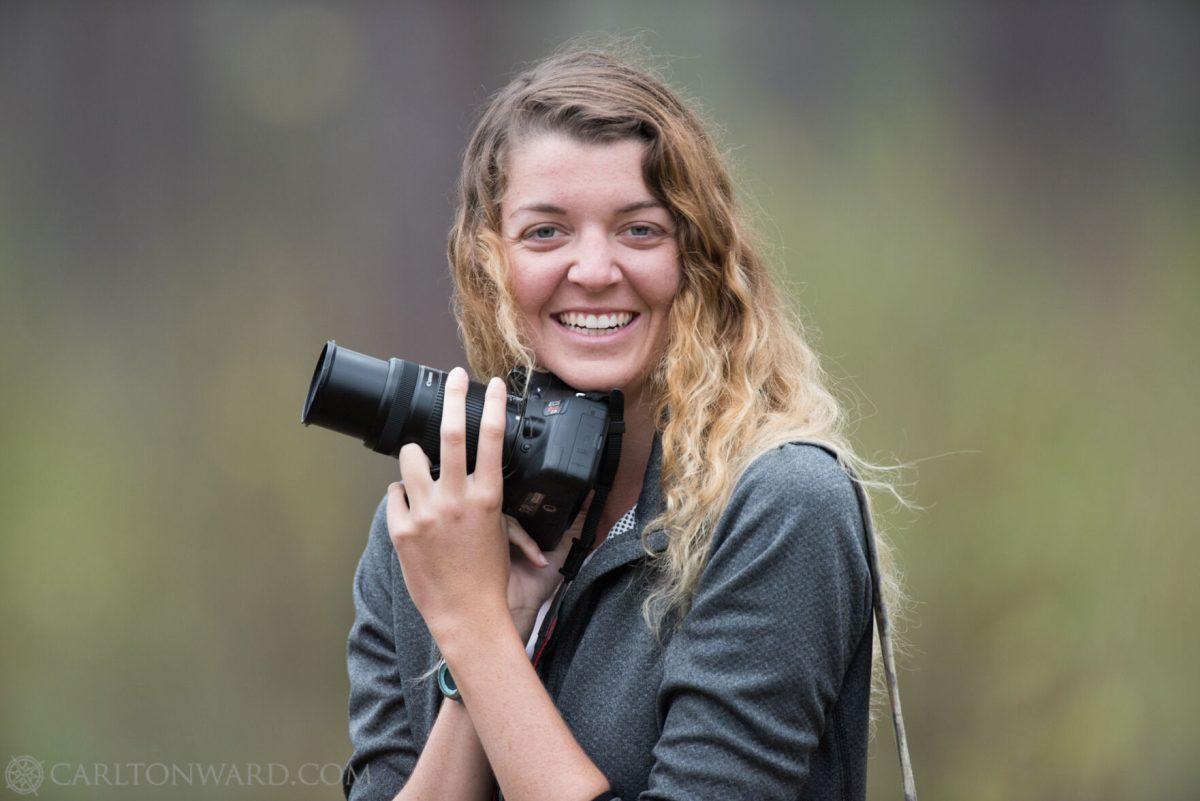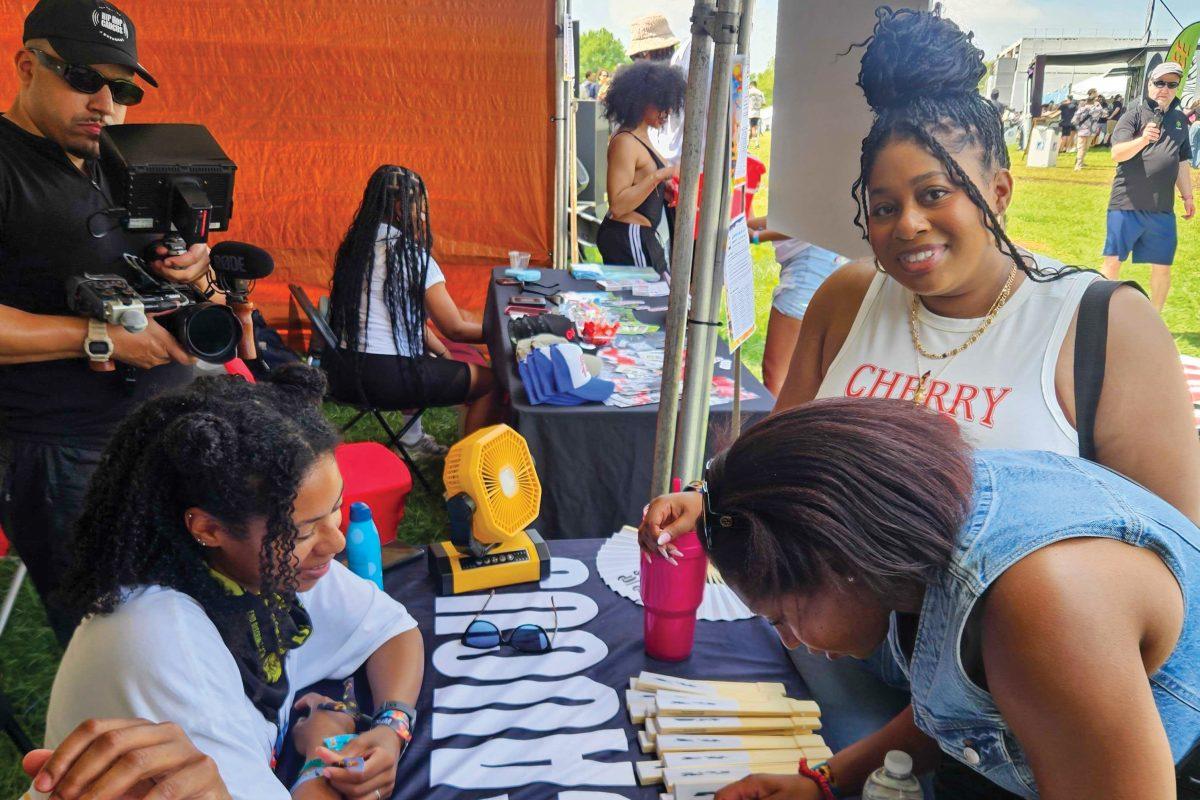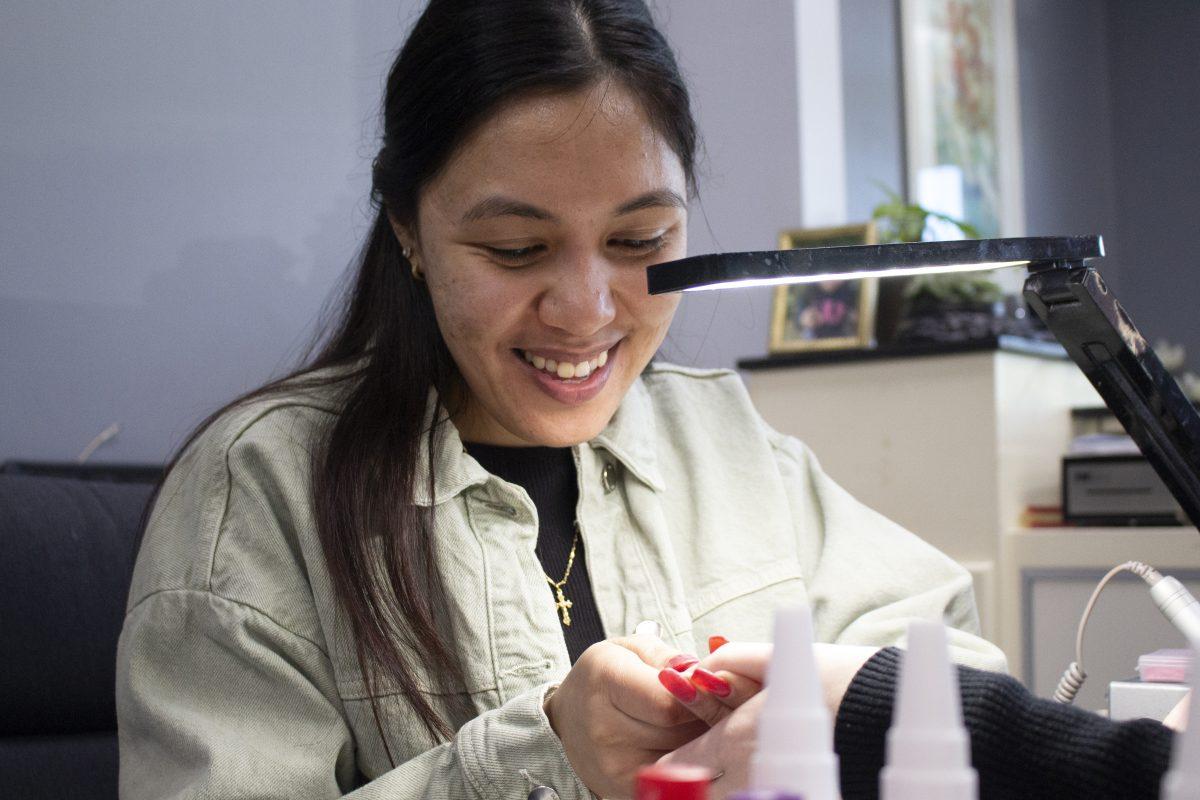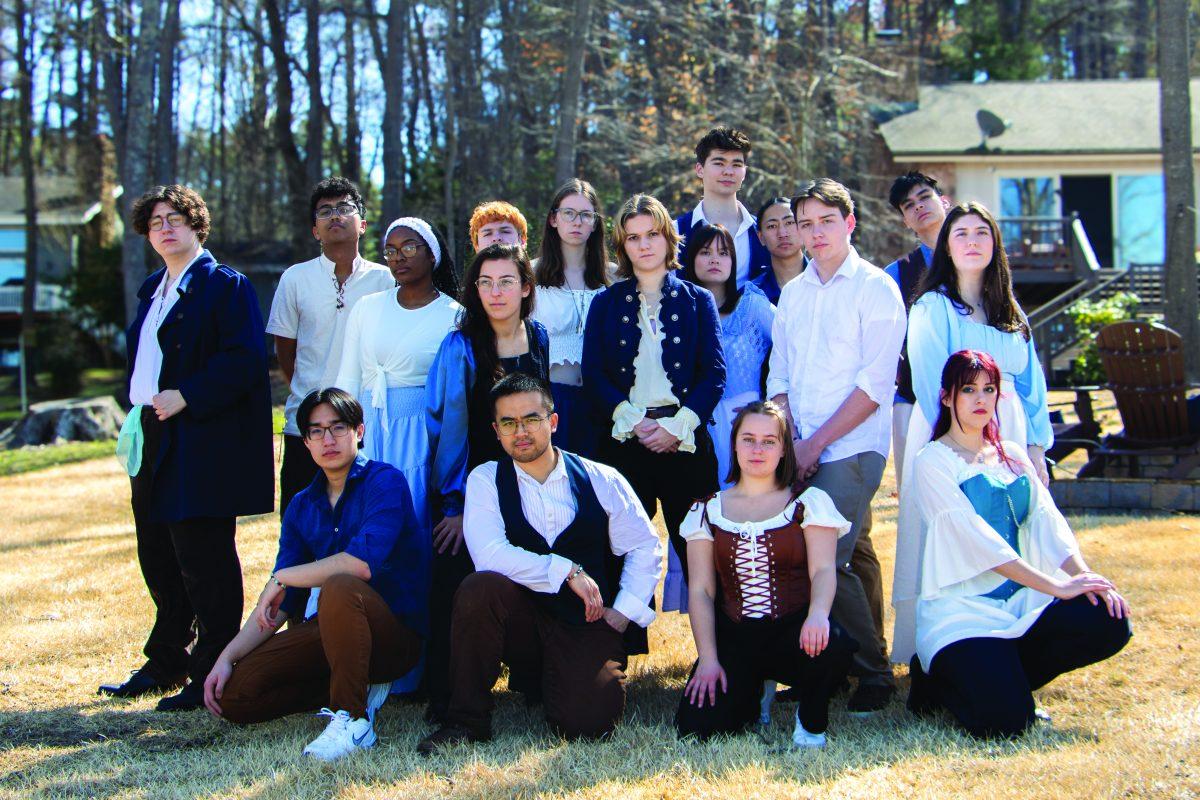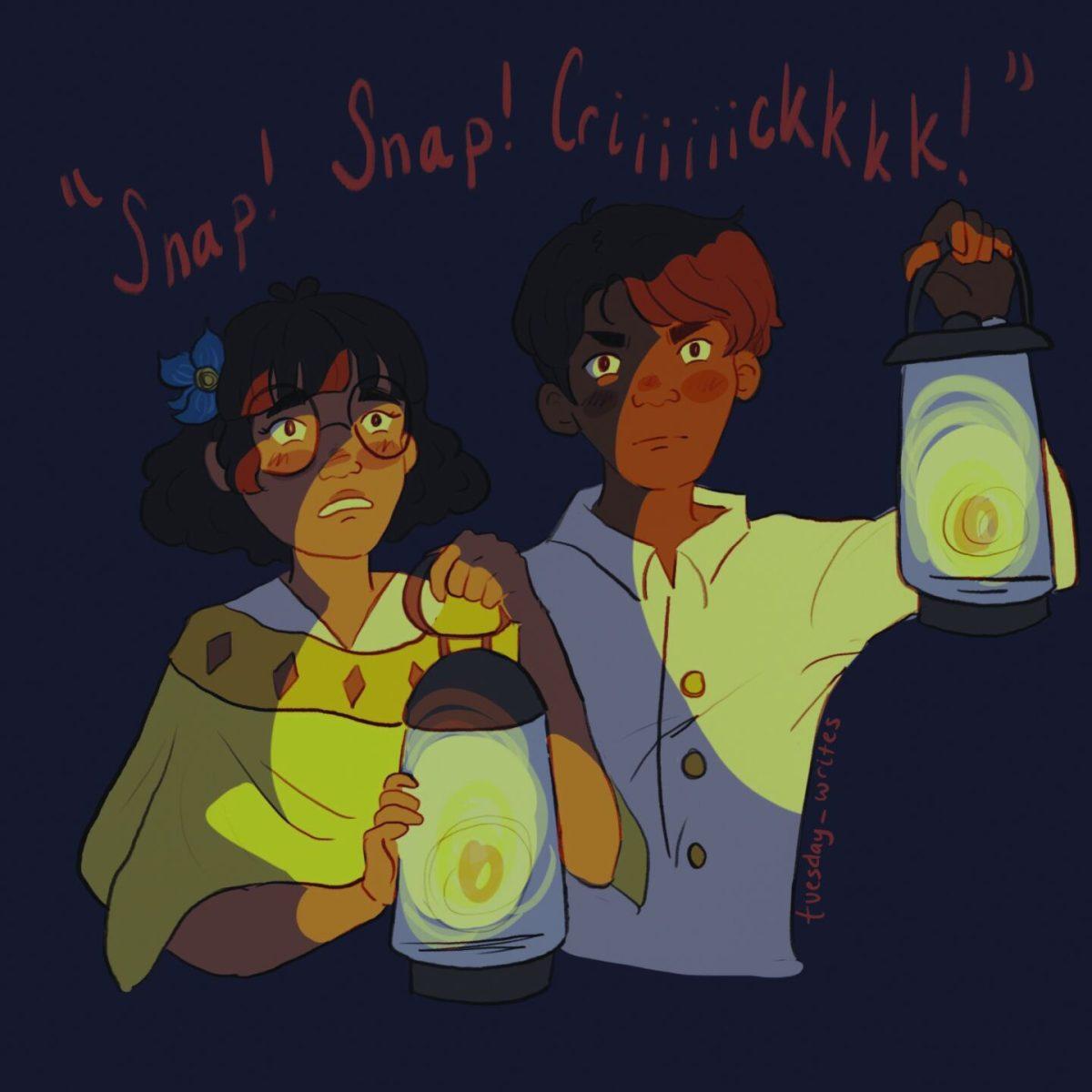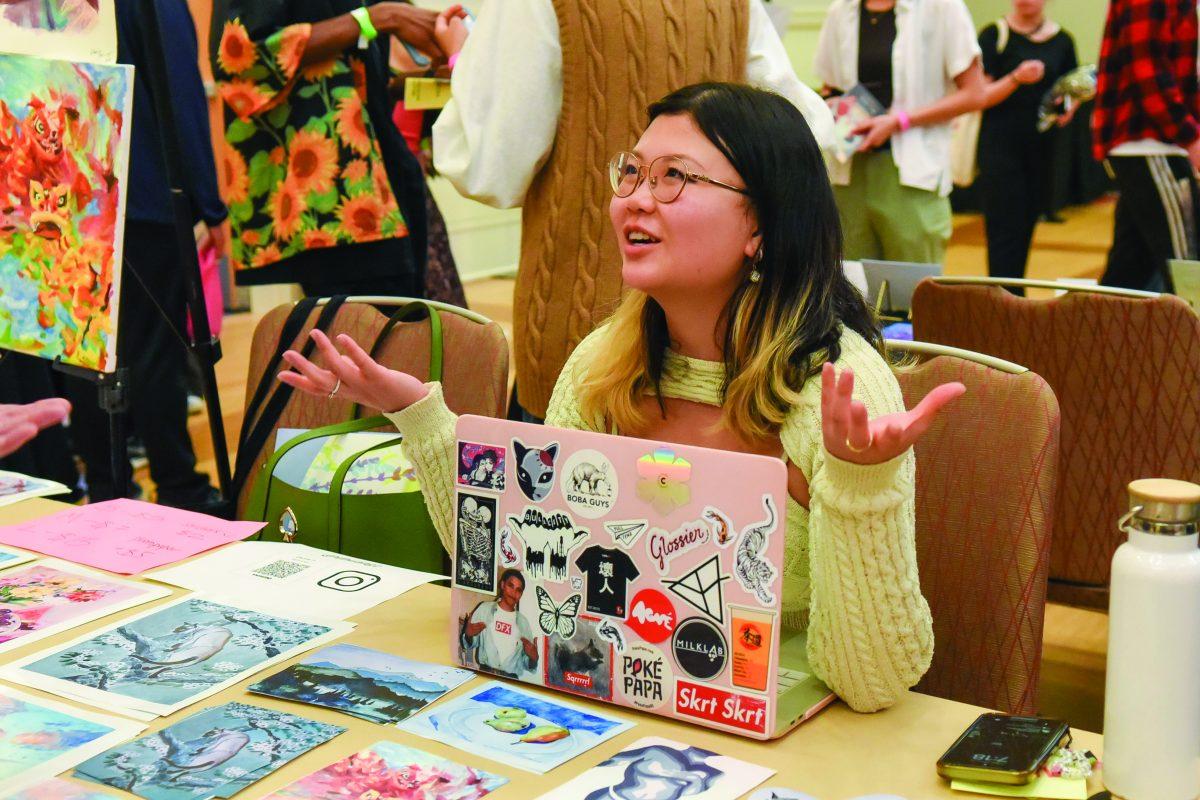From panthers in the Florida Everglades to a hurricane-stricken forest in the tropics, NC State alum Alex Freeze’s photographs display mesmerizing scenes, winning her numerous awards and publication in several books and magazines.
Freeze is a seasoned conservation photographer, science communicator and anthrozoology educator. She is passionate about capturing the relationship between humanity and the natural world.
As a sixth-generation Floridian from Tampa, she enjoys distilling the beauty of her home state through her work. She often captures threatened wildlife and landscapes in an effort to deepen her audience’s appreciation of nature. Freeze bridges the gap between science and art, translating environmentalism to an accessible language for the public.
As soon as she was able to walk, Freeze spent her days outdoors, exploring the vast wonders of the natural world around her. Her mother, a watercolor artist, inspired Freeze to channel her scientific interests through art. During her sophomore year in college, she purchased her first DSLR crop sensor camera and became fascinated with photographing animals.
Following two tropical ecology study abroad programs in the Galapagos and Nicaragua with her new camera, Freeze fell in love with the power of photography to captivate viewers and deepen their connection with the natural world. She graduated from NC State in May 2014 with an undergraduate degree in wildlife biology.
“I fell in love with documenting rainforests and my peers’ experiences,” Freeze said. “Turns out I had an eye for photography, and I’ve been an artist ever since.”
The University Honors Forum hosted Freeze on Monday, Jan. 30, when she discussed the power of storytelling to communicate scientific concepts.
“Oftentimes, data and statistics do not resonate with people,” Freeze said. “Art, photography and communications are an incredible vehicle for telling stories.”
Freeze said connecting people with their local overlooked environments is important. She wants to adjust people’s understanding of the wild to their own backyard rather than unfamiliar landscapes thousands of miles away.
North Carolina, for example, is home to part of the Appalachian mountain range, the oldest mountain chain in North America and just a few hours away from Raleigh. The Appalachians are home to the greatest biodiversity of salamanders in the world.
“The natural treasures are hidden in plain sight,” Freeze said. “Photography creates this physical window into the hidden wilderness that is right in your own backyard.”
Shortly after graduation, Freeze worked as a photography intern for National Geographic explorer Carlton Ward Jr. ‘s project Glades to Gulf in the Florida Wildlife Corridor. The 70-day expedition involved 1,000 miles of hiking, biking and kayaking from the Green Swamp to Pensacola and raised awareness for the region’s need for preservation.
Freeze said about 1,000 people move to Florida every day, and the state loses 28 acres of wild land every hour, demonstrating the dire circumstances. Glades to Gulf resulted in the acclaimed documentary “The Forgotten Coast: Return to Wild Florida.”
Looking back on her various projects, Freeze said she is most proud of Path of the Panther, where she worked as a field photography assistant for Ward while documenting the Florida panther and its conservation challenges. She enjoyed operating the remote camera traps, an advanced technological innovation that allows animals to take photos themselves through sensory detection cameras.
In 2018, Freeze rejoined the Florida Wildlife Corridor Foundation as logistics and outreach coordinator for the Heartland to Headwaters expedition. The project resulted in the documentary “The Last Green Thread,” with Freeze as the associate producer.
In 2020, Freeze led three high school students on a seven-day expedition through the wilderness of Palm Beach County, Florida. The expedition marked Freeze’s transition from behind the scenes filmmaking to on-camera support; Freeze was the narrator for the PBS film “Hidden Wild,” now available for online streaming through NRS. Freeze said this was a unique immersive experience with the students.
“You’re not going back to a hotel room at night,” Freeze said. “You are camping, charging your phone with solar panels, fully submerged in the wilderness.”
Most recently, Freeze was logistics coordinator with the Florida Wildlife Corridor team during their Spring to Shore expedition. Over five days, Freeze traversed 50 miles alongside two other women, evaluating a narrow section of the Corridor between the ocean and the inland region. The expedition culminated in the documentary “Home Waters,” with Freeze as the associate producer.
Freeze emphasizes inclusivity in her work by portraying female coworkers immersed in the historically male dominated field of conservation biology.
Freeze is currently the vice president and secretary on the board of directors of the Biocultural Conservation Institute, a 501(c)(3) nonprofit with a mission to empower local communities to protect their native wildlife.
The organization partners with two communities: the Maasai tribe in the Amboseli region of Kenya and the Batwa tribe in the forest of Uganda. Freeze and her colleagues dig wells, build shelter and fund food and educational materials while providing environmental education.
“Those basic human necessities can be tied directly to conservation work, because they stop illegal logging and the collection of bushmeat,” Freeze said. “But as a conservation organization, we put the livelihood and the well being of our partners above all.”
Freeze currently lives in Virginia and researches the endangered northern long-eared bat at Virginia Tech. Freeze has prepared several video- and photo-essays that are ready to be published in the upcoming months and is planning an expedition to the Appalachian Mountains next summer with a group of students from Radford University.
Her husband, Sam Freeze — also an NC State alum — works to protect endangered and rare species on military installments and said Alex Freeze has a unique combination of backgrounds in both science and communication. He said his wife’s work has a drastic impact.
“Photographs and film can reach just such a broad audience and have led to high-level conservation actions that influence law and policy,” Sam said.
This includes the passage of the Wildlife Corridor Acts by Florida Gov. Ron DeSantis, which helped to protect land and allocate significant funding for conservation.
Alex is hopeful for the future of conservation, but said there is still a lot to be done.
“Gen Z has just blown me away with their environmental ethic,” Alex said. “But we’re running out of time for a lot of these places. So I feel a deep sense of urgency to get as many different kinds of people involved in conservation as possible. The work is not done. It needs to continue.”


